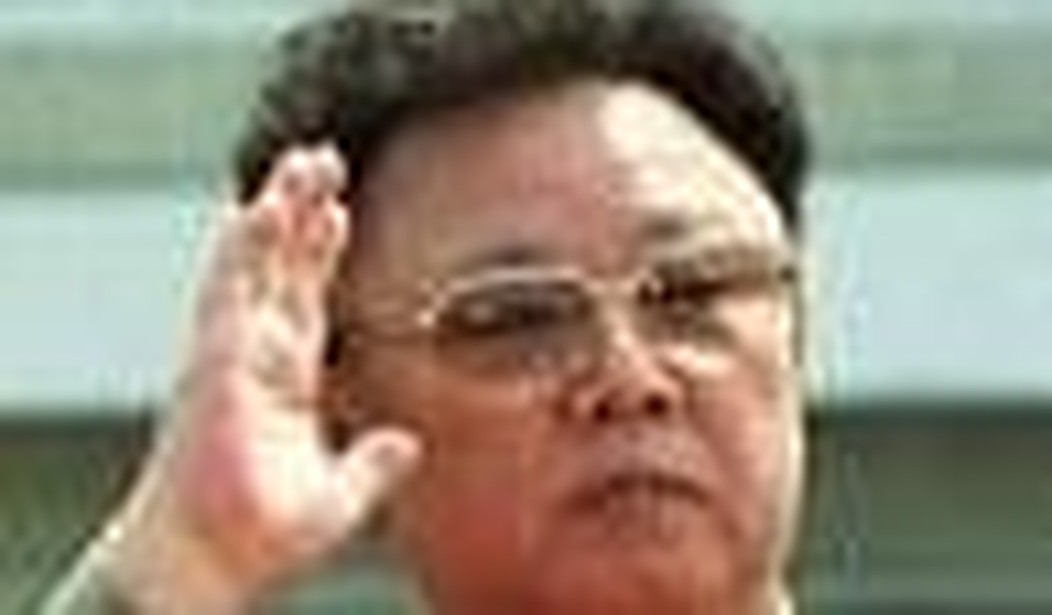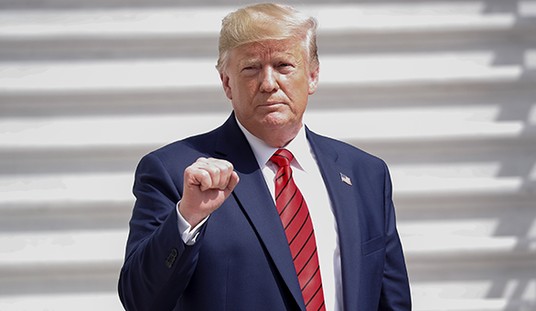Kim Jong Il suffered a stroke last month, died in 2003, or is in perfectly good health at this moment, all according to recent reports. We will one day know which one of them is true, but by then it may be too late. Why? The events of the last few days could be setting the stage for China to eventually absorb North Korea.
First, the facts. Yesterday, Kim did not attend the military celebrations in Pyongyang to mark the 60th anniversary of the founding of the Democratic People’s Republic of Korea. His absence fueled rumors of his poor condition, spread by a senior U.S. intelligence official, that the North Korean suffered a stroke in the last few weeks. A South Korean official in Beijing was quoted as saying that Mr. Kim collapsed on August 22. A team of five Chinese doctors have been reported to be attending to him since late last month.
Today, Kim Yong Nam, often described as Pyongyang’s No. 2 leader, said there is “no problem” with his boss’s condition. This follows other denials from high-ranking regime members. “We see such reports as not only worthless, but rather as a conspiracy plot,” said senior diplomat Song Il Ho, referring to rumors of Kim Jong Il’s poor health. “Western media have reported falsehood before.”
Many times, in fact. Some analysts argue there is less going on than meets the eye in the DPRK, as the North Koreans like to call their miserable little nation. “The starting point on all this should be that we don’t know diddly about what is going on inside that closed country,” says Brad Glosserman of the Pacific Forum in Honolulu. “Kim has a tendency to drop out of sight when there is a tough decision to make.” All the well-known Korea expert says is true — Kim Jong Il now faces a series of especially tough decisions about surrendering his nuclear weapons. And, as a general matter, it is hard to find significance in anything the world’s strangest national leader does not do. After all, he is even known for not showing up at celebrations of his own birthday.
Yet Kim’s legitimacy is derived from the fact that his dad, Kim Il Sung, founded the North Korean state, so it is significant he was a no-show for the big celebration in Pyongyang, especially because he has appeared at every previous anniversary parade. More important, the parades are important military affairs and he depends on the military as his base of support. Kim refers to his songun — army first — policy, but for him the military is first, last, and everything in between. In fact, his primary title is Chairman of the National Defense Commission. Therefore, the 60th anniversary event was not something he would ever skip on a whim. The Nelson Report, the Washington must-read e-mail alert, noted yesterday that Kim Yong Nam has now begun to refer to Kim Jong Il in the past tense.
So what comes next? None of the three known sons of Kim is considered suitable as a successor. In any event, Dear Leader has not groomed any of them as his dad groomed him over the course of decades. Because the military is the only institution in society that has the ability to accomplish its aims, many assume that one or more general officers will take over when Kim passes the scene. The betting is that a committee of them will end up running North Korea.
That will undoubtedly make Beijing happy. As an initial matter, China’s leaders, who govern a country of 1.5 billion people from their perch on a nine-man group (the Politburo Standing Committee), will undoubtedly feel comfortable dealing with another committee — rather than one unpredictable runt — in Pyongyang.
A collective military government would be a natural result of Kim Jong Il’s demise. Although he began in the 1980s to purge North Korean officials friendly to the Chinese, Beijing has for more than a decade cultivated Kim’s generals, some of whom now keep their personal assets in China. Moreover, at lower levels the links between the Korean People’s Army and the People’s Liberation Army are relatively strong, especially because junior officers are suspected of conducting unsavory business across their nations’ common border. In any event, it is Chinese aid that sustains Kim’s military, which “could neither bark nor bite” without Beijing. China provides some 90 percent of the North’s oil, 80 percent of its consumer goods, and 45 percent of its food.
The Chinese are so confident of their links to Korea that they have recently spurned initiatives from Seoul to talk about what to do in case of instability in the North. The turndown is an indication that Beijing does not believe it will have to implement its plans to send a military force south, establish order, and either annex the DPRK or, more probably, leave behind a compliant government. After all, it has already lined up its supporters in Pyongyang and sees little reason to either share information or let any other nation have access in the case of an emergency.
When Kim, now 66 and afflicted with diabetes and heart disease among other ailments, dies or becomes incapacitated, China is bound to pick up surviving regime elements and fashion a Beijing-friendly government in Pyongyang. Korean unification, a dream of almost every person south of the Demilitarized Zone, will be set back even further. China is already home to at least two million ethnic Koreans, and Beijing looks set to exert its dominion over many more of them. You can, if you want to pick an analogy from today’s headlines, think of North Korea as China’s South Ossetia.









Join the conversation as a VIP Member